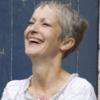The so-called fat pill has been touted as the way forward for weight loss.
However, the fat pill Mysimba has been rejected by NICE (The National Institute for Health and Care Excellence), the body which is responsible for providing guidelines for the NHS.
NICE is recommending Mysimba (naltrexone–bupropion) is NOT funded by the NHS.
This is despite the fact that evidence has shown using drug alongside exercise and a healthy diet is more effective than lifestyle measures.
Side effects of the fat pill
However, long-term effect of the drug is unknown. There are also questions about the cost-effectiveness of the drug.
In a statement, NICE stated: “More certainty is needed that naltrexone–bupropion will provide value for the NHS.
Chief executive, Ahmed Al-Derzi of Consilient Health, Mysimba’s distributor in the UK and Ireland, said:
“Rejecting Mysimba, a clinically effective treatment that can help in the fight against obesity in the UK, limits the choice of treatment options for healthcare professionals and patients.”
Obesity drug discontinued
This is not the first time that a ‘fat drug’ has been touted as the next big thing. Reductil worked on the neurotransmitters in the brain and used active ingredient sibutramine hydrochloride. It was discontinued in 2010.
There was found to be an increased risk of non-fatal heart attacks and strokes which outweighed the benefits.
Now another so-called new fat drug is off the market, what is the answer for those who wish to lose weight?
The best way to measure fat levels
The first thing to do is to check your risk. Although doctors used to utilise the BMI to decide on whether a person required a weight loss programme, increasingly, the DEXA scanner - originally developed for osteoporosis - is used to give a precise measurement of body fat.
The DEXA scanner (short for dual energy X-ray absorptiometry), sends two low-dose x-rays through the body. One peak is absorbed mainly by soft tissue and the other by bone.
By using ‘Advanced Body Composition’ software, the DEXA can show the total fat in the trunk area of your body. Too much fat around the middle is a risk factor for heart disease.
The ‘Core Scan’ option identifies whether the fat is visceral – the dangerous and deep variety which wraps its self around the liver, pancreas and intestines – which are risk factors for diabetes, heart disease and cancer rise.
The DEXA is completely safe and you self-refer.
How to lose fat
Once you’re armed with your Total Body Composition, you need to make a decision on how to tackle the battle of the bulge. You could consider seeing a clinical nutritionist, such as Stephanie Moore, author of Why Eating Less and Exercising More Makes You Fat (available from AMAZON).
According to Stephanie Moore, we often make errors on the way to weight loss.
“You shouldn’t simply cut down on calories,” comments Moore. “Apart from the fact it’s hard to stick to, you are powerfully training your body to run on less. It’s called the famine effect and any sustained low calorie intake, especially when combined with extra exercise, changes the way in which your body processes what you eat – making storage a priority and down-regulating metabolism so that your body can manage on less! This means you can never go back to eating more calories again.
It's also important to remember to prioritise nutritionally-rich foods over so-called ‘diet’ foods. Moore also recommends not eschewing so-called ‘fat’ foods.” When we eat healthy, high calorie foods like nuts, coconut, avocados and olive oil, these foods balance and improve biological function plus provide us with energy,” she says. “Diet foods are often low in fat, but highly processed. You have a fat-storing mode and a fat-burning mode. Depending on the type of foods you eat, you are triggering one or the other. Choose carbs, you are turning off all ability to burn fat and driving foods you eat to be stored as fat.”
“Sugar and starch-rich foods such as bread, crackers, cakes, biscuits, white potatoes, white rice etc. serve ONLY to provide an abundance of energy which, if not immediately burned off, will get stored as fat.”
She adds: “Avoid foods that push up blood sugar and trigger insulin, you will learn what truly feeling full and satisfied is.”












